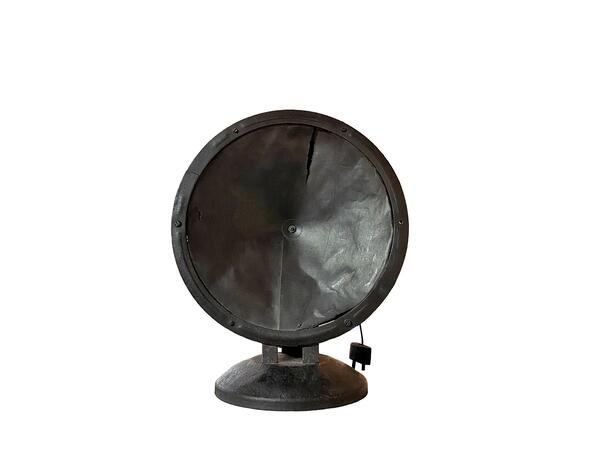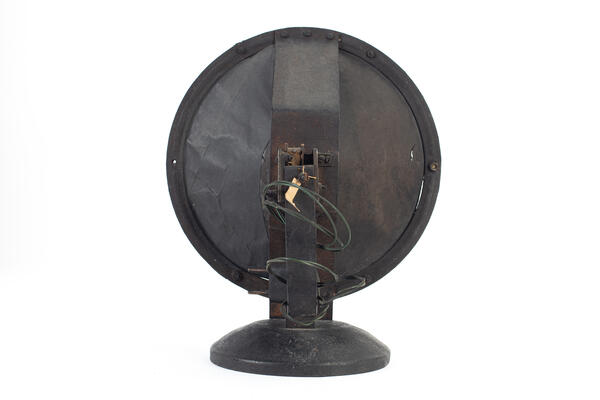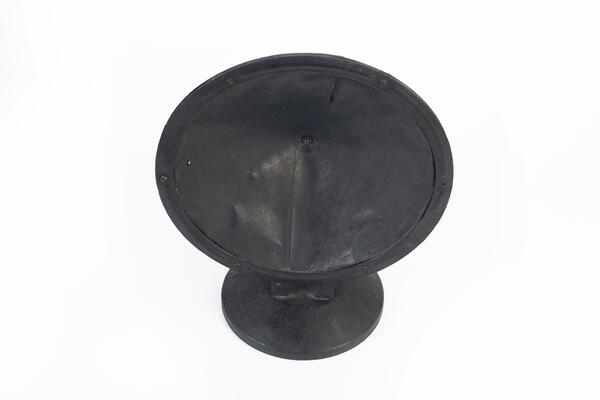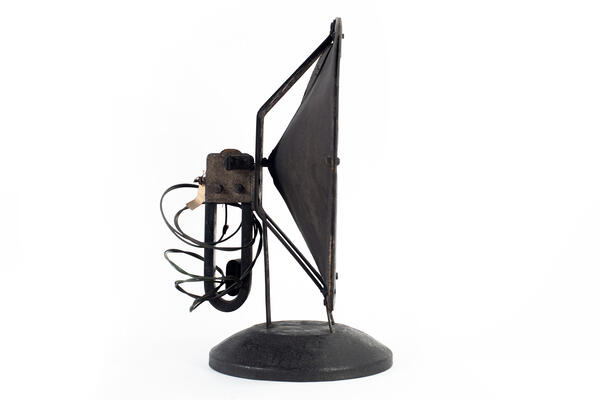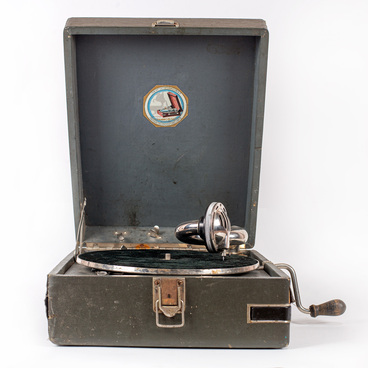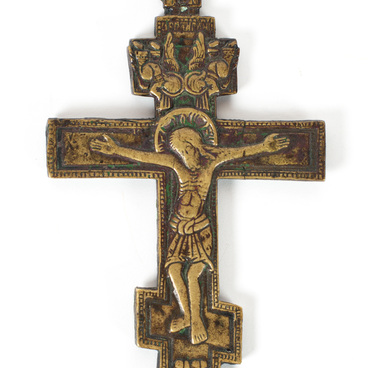The Rekord was the most mass-produced loudspeaker in the USSR. It was made at plants in Moscow, Leningrad, Nizhny Novgorod, and Kharkiv from 1924 to 1952. Rekord loudspeakers could be either desktop or wall-mounted, suspended or placed onto a special base. The design was fairly simple: a cone diffusor made of black paper, a metal frame, an electromagnetic mechanism and volume controls.
A Rekord loudspeaker was connected to a radio outlet and played the only available radio station. Thanks to this radio, Soviet people could listen to news broadcasts, educational programs, sportscasts, concert recordings, and radio plays in their apartments. Not everyone could afford a loudspeaker: the device cost more than 20 rubles, and the average salary was 110 rubles. Often people visited each other to listen to radio broadcasts.
During the Great Patriotic War, the radio broadcasting system was entrusted with a task of national importance — the transmission of reports from the Soviet Information Bureau and the management of civil safety. In wartime, Rekord loudspeakers were installed in apartments, houses, huts, libraries and on street poles. Soviet citizens gathered around them every day to listen to the announcements about the progress of the war.
“Black dishes” grew to symbolize the siege of Leningrad. In the first days of the war, the Leningrad radio network installed 1,500 similar outdoor loudspeakers. They were arranged in a certain way to ensure that the signal reached every corner of the city. The loudspeakers worked round the clock: the metronome was ticking, shelling and air raid alerts were declared, and important information about security and food rations was announced.
At the front, the Rekord loudspeakers broadcast the songs of Lidia Ruslanova and Isabella Yurieva for the soldiers. A special program called “Listen, front!” transmitted poems, concerts, and inspirational marches on a daily basis. Radio united and supported the people, as well as created a single information space. The end of the war was announced over Rekord loudspeakers: on May 9, 1945, the voice of Yuri Levitan sounded all over the country, declaring the surrender of Germany and the Great Victory.
A Rekord loudspeaker was connected to a radio outlet and played the only available radio station. Thanks to this radio, Soviet people could listen to news broadcasts, educational programs, sportscasts, concert recordings, and radio plays in their apartments. Not everyone could afford a loudspeaker: the device cost more than 20 rubles, and the average salary was 110 rubles. Often people visited each other to listen to radio broadcasts.
During the Great Patriotic War, the radio broadcasting system was entrusted with a task of national importance — the transmission of reports from the Soviet Information Bureau and the management of civil safety. In wartime, Rekord loudspeakers were installed in apartments, houses, huts, libraries and on street poles. Soviet citizens gathered around them every day to listen to the announcements about the progress of the war.
“Black dishes” grew to symbolize the siege of Leningrad. In the first days of the war, the Leningrad radio network installed 1,500 similar outdoor loudspeakers. They were arranged in a certain way to ensure that the signal reached every corner of the city. The loudspeakers worked round the clock: the metronome was ticking, shelling and air raid alerts were declared, and important information about security and food rations was announced.
At the front, the Rekord loudspeakers broadcast the songs of Lidia Ruslanova and Isabella Yurieva for the soldiers. A special program called “Listen, front!” transmitted poems, concerts, and inspirational marches on a daily basis. Radio united and supported the people, as well as created a single information space. The end of the war was announced over Rekord loudspeakers: on May 9, 1945, the voice of Yuri Levitan sounded all over the country, declaring the surrender of Germany and the Great Victory.

